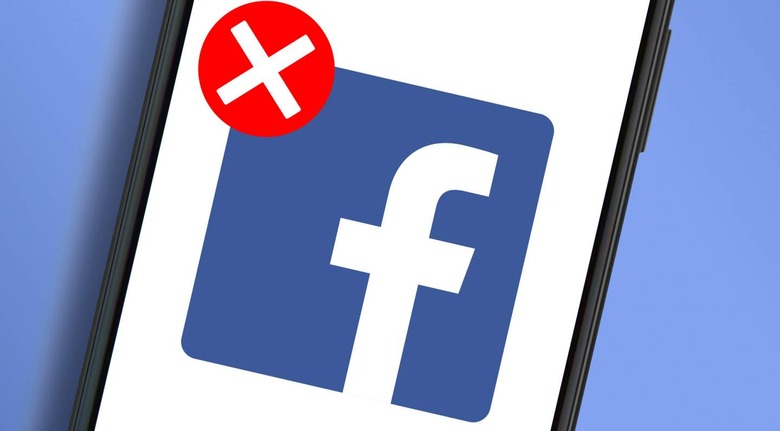Why You Need To Delete, Not Just Deactivate, Your Facebook Account
Facebook may be the 800-pound gorilla of social media platforms, but the company's business practices are leading many users to abandon it. In recent years, Facebook has been embroiled in one scandal and issue after another and has become synonymous with abuse of privacy. The Cambridge Analytica scandal was one of the biggest such examples, with the private data of tens of millions of users misused for political reasons (via The New York Times). Users are also coming to the realization that, as with many free services, the user is the product. Facebook doesn't provide the services it does out of the goodness of its heart — it counts on being able to collect, mine, and monetize every scrap of data it can from its users.
Beyond privacy, there are also issues with misinformation and toxic behavior, issues that have led many to decide it's time to part ways with the platform. Despite Facebook making it possible to disable or delete an account, there are substantial differences between the two options.
Disabling A Facebook Account
If you're looking to break free from Facebook, disabling an account is a good first step that accomplishes a number of things. Disabling an account makes it impossible for other people to look up your account, see your pictures, or follow your timeline. Your name will also be removed from most things, such as comments on other people's photos, although the comment itself will remain. Per the company's information, disabled accounts can still use Messenger as well.
Most significantly, however, Facebook retains all of your data when an account is disabled. Facebook ultimately wants you to come back to the platform, not abandon it entirely. Therefore, the company keeps your data, ready and waiting for your return.
As a result, while disabling an account may be a good option for someone looking for a temporary break from Facebook, that's exactly what disabling an account is — a temporary option, not a permanent solution.
Deleting A Facebook Account
Individuals looking to truly break up with Facebook are far better off deleting their account.
Deleting an account completely severs your ties to Facebook's primary platform. That means you will not be able to access Messenger, your photos, or any pages you have created and are the administrator for. During the deletion process, Facebook will also give you the opportunity to download a copy of your data, including any photos you have uploaded.
Facebook will also delete your information once you delete an account, although not right away. Once you opt to delete your account, Facebook takes 30 days to process the deletion, during which time your account is essentially deactivated, just like it would be if you manually deactivated it. This also means you have a 30-day grace period to reactive your account if you change your mind. After those 30 days, however, your account and information should be deleted from Facebook's servers.
If you are truly concerned about Facebook having your data, monetizing it, or sharing it with other companies, deletion is definitely the way to go.


